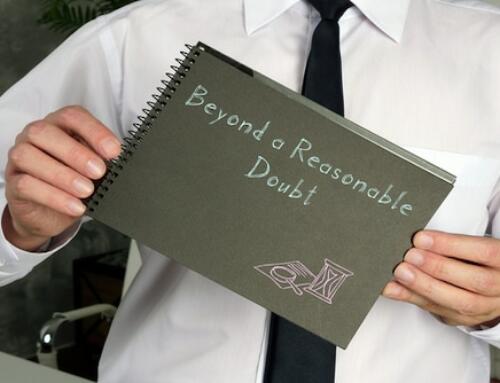Although shoplifting may seem easy to define, in legal terms, a shoplifting charge can mean quite a few things. Of course, shoplifting, also known as retail theft, most commonly refers to taking possession of merchandise from a store without paying. Some don’t know, however, that altering a price tag or removing an alarm tag from an item also warrants a shoplifting charge. The consequences of shoplifting, if convicted, usually depends on the value of the items stolen. Below we’ll discuss some of the acts that are considered retail theft in Pennsylvania and the consequences of shoplifting.
What Constitutes Retail Theft in Pennsylvania?
Removing an item from a store without paying, altering any indicator of value, such as a price tag, under-ringing an item at a self-checkout, or destroying an anti-theft tag are all considered shoplifting in PA. Altering a price tag can mean removing it completely, replacing it with a price tag of an item of lesser value, or adding another tag or sticker to it to reduce the price. Under-ringing is common in larger stores that have self-checkout capability. Weighing out fresh seafood but entering it into the computer as bananas also qualifies as shoplifting. Finally, destroying or cutting off an anti-theft tag is considered shoplifting, even if the item hasn’t been removed from the store at that point. The basic, underlying principle is that any action taken to defraud a business or retail establishment by paying less than the full retail value of any item is shoplifting.
What are the Penalties for Retail Theft in Pennsylvania?
The penalties for retail theft in Pennsylvania depend on the value of the items in question and any previous charges that the individual has been convicted of.
- For merchandise totaling less than $150:
- A first offense constitutes a summary offense, meaning that if convicted, the defendant will pay a fine.
- Misdemeanor of the second degree for a second offense.
- For Merchandise totaling more than $150:
- A first or second offense constitutes a first-degree misdemeanor, while a third or greater offense would result in a third-degree felony.
- For Merchandise totaling more than $2000 or involving a firearm or motor vehicle:
- A third-degree felony and other possible charges or penalties.
Even with the conditions and penalties laid out, it can be difficult to fully understand what it means for you. And while it may not seem like a big deal to plead guilty and pay a small fine, the consequences of having a charge on your criminal record can be much more costly than hiring a theft attorney. If you or someone you know has been charged with a shoplifting offense, it is best to have an attorney clarify what exactly you’re facing and what can be done to defend against the charge.
Philadelphia Criminal Defense Attorney for Shoplifting Charges
Brian Fishman has over twelve years of experience in criminal defense law in Pennsylvania. Let him put his legal knowledge to work for you as he fights to protect your rights and give you the best criminal defense possible. Call him today for a free consultation.






